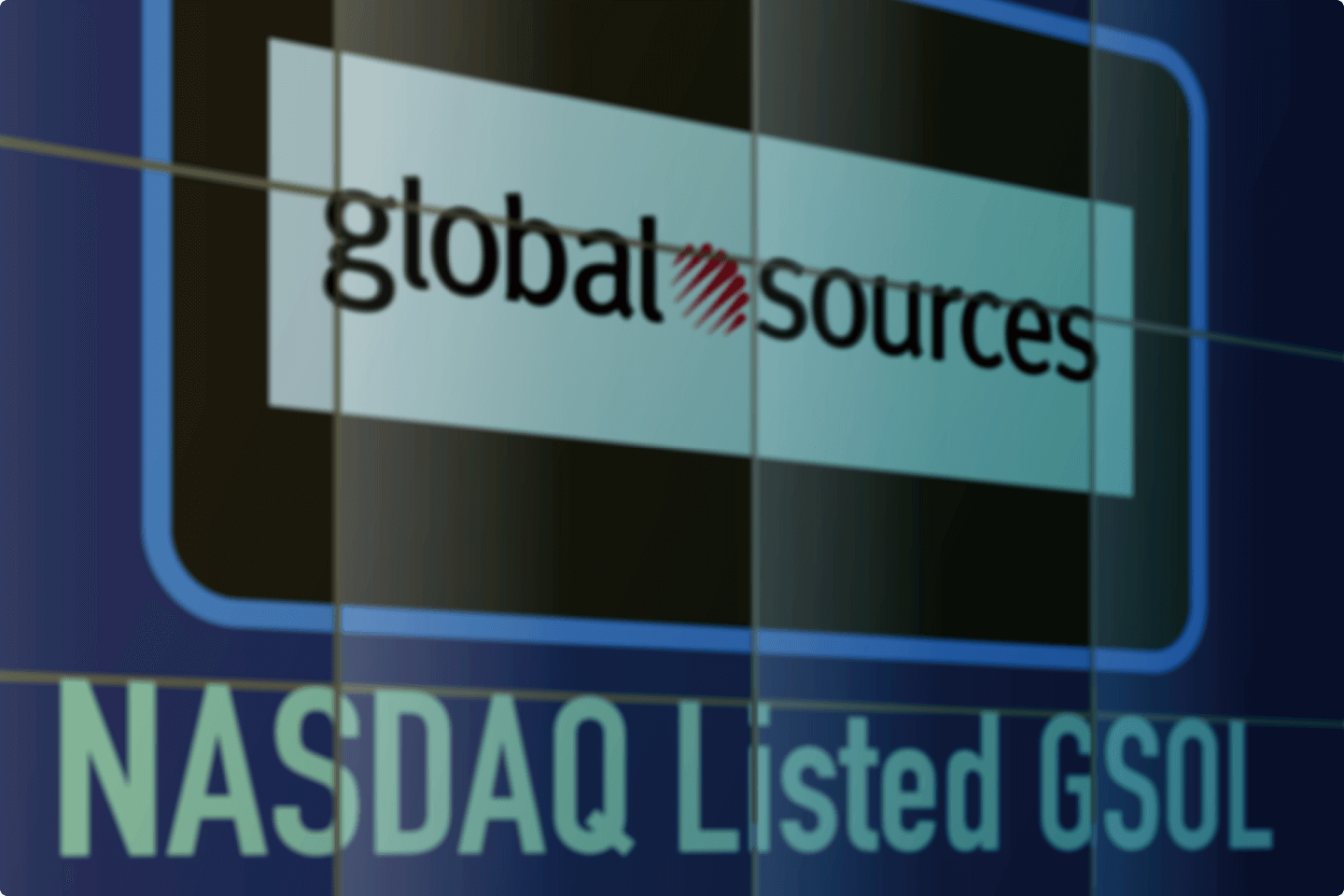Alternatives to Alibaba
1. Global Sources
+Pros
- Rigorous supplier verification maintaining 20% acceptance rates.
- 50+ years of traditional trade facilitation experience combined with successful digital transformation.
- Hybrid engagement model with physical Hong Kong trade shows.
-Cons
- Lacks autonomous negotiation capabilities offered by Keelvar.
- 28% of buyers seeking European or North American suppliers find limited options outside Asia.
- 12% of users report PayPal transaction-related issues.
One highlighted feature and why it's amazing
Global Sources' primary differentiator lies in its comprehensive supplier verification process, accepting only 20% of applicants as 'Verified Suppliers' after business license authentication, production audits, and sample testing.

Another highlighted feature of why it’s amazing
The platform implements predictive sourcing algorithms that analyze buyer behavior patterns to recommend relevant suppliers, though technical documentation remains proprietary.
2. Jungle Scout
+Pros
- Amazon Ecosystem Specialization represents Jungle Scout's primary competitive advantage, with deep integration into Amazon Seller Central and superior Amazon-specific intelligence compared to broader market research platforms .
- Supplier Intelligence Database provides validated supplier verification through U.S. Customs data cross-referencing with shipment histories, offering capabilities that general product research tools cannot match .
- Proven Customer Outcomes include documented success stories with substantial sales improvements, including $150,000+ in customer profits and significant growth during high-stakes periods like Prime Day .
- Accessible Implementation through browser-based architecture and straightforward deployment enables SMB businesses to achieve functionality with minimal technical resources and standard setup timeframes .
-Cons
- Multi-Channel Constraints create significant limitations, as the platform's restriction to Amazon/Walmart/Shopify channels constrains businesses seeking broader ecommerce platform support .
- Platform Dependency Risk emerges from over-reliance on Amazon-specific optimizations, creating vulnerability for businesses expanding beyond Amazon .
- AI Content Limitations require substantial human oversight, as AI-generated listings typically need significant editing to maintain brand voice alignment .
- Technical Constraints include customs data updates that may lag real-time shipments, creating potential blind spots in supplier monitoring .
One highlighted feature and why it's amazing
Delivers practical automation for time-intensive ecommerce tasks, including review analysis tools that scan product feedback to surface improvement opportunities, automated profit reporting that streamlines financial oversight, and listing optimization that generates Amazon-compliant content .
Another highlighted feature of why it’s amazing
Cross-references U.S. Customs data with shipment histories to validate manufacturer legitimacy and operational track records .
3. Keelvar
+Pros
- Proven enterprise performance with Samsung achieving 85% time reduction in RFQ processes.
- Constraint-based optimization handling 40+ business rules provides sophisticated capability for complex procurement scenarios.
- Validated capabilities demonstrate Fortune 500 market validation through successful implementations across Siemens, Mars, Coca-Cola, and Maersk.
-Cons
- Resource-intensive implementation requirements demanding 6-9 month deployment timelines with cross-functional teams of 5-8 FTEs.
- High investment costs of $200K-$500K initial setup plus 15-20% annual maintenance fees limit accessibility to enterprise organizations.
One highlighted feature and why it's amazing
Automating procurement workflows through natural language processing that populates forms from conversational requests.
Another highlighted feature of why it’s amazing
Handles 40+ business rules simultaneously for complex multi-lot bid scenarios, enabling sophisticated scenario modeling that balances cost, risk, and sustainability factors.
Other Alternatives
LevaData
Nosto Commerce Experience Platform
Prediko
Sourcify
Veridion
How We Researched This Guide
About This Guide: This comprehensive analysis is based on extensive competitive intelligence and real-world implementation data from leading AI vendors. StayModern updates this guide quarterly to reflect market developments and vendor performance changes.
219+ verified sources per analysis including official documentation, customer reviews, analyst reports, and industry publications.
- • Vendor documentation & whitepapers
- • Customer testimonials & case studies
- • Third-party analyst assessments
- • Industry benchmarking reports
Standardized assessment framework across 8 key dimensions for objective comparison.
- • Technology capabilities & architecture
- • Market position & customer evidence
- • Implementation experience & support
- • Pricing value & competitive position
Research is refreshed every 90 days to capture market changes and new vendor capabilities.
- • New product releases & features
- • Market positioning changes
- • Customer feedback integration
- • Competitive landscape shifts
Every claim is source-linked with direct citations to original materials for verification.
- • Clickable citation links
- • Original source attribution
- • Date stamps for currency
- • Quality score validation
Analysis follows systematic research protocols with consistent evaluation frameworks.
- • Standardized assessment criteria
- • Multi-source verification process
- • Consistent evaluation methodology
- • Quality assurance protocols
Buyer-focused analysis with transparent methodology and factual accuracy commitment.
- • Objective comparative analysis
- • Transparent research methodology
- • Factual accuracy commitment
- • Continuous quality improvement
Quality Commitment: If you find any inaccuracies in our analysis on this page, please contact us at research@staymodern.ai. We're committed to maintaining the highest standards of research integrity and will investigate and correct any issues promptly.